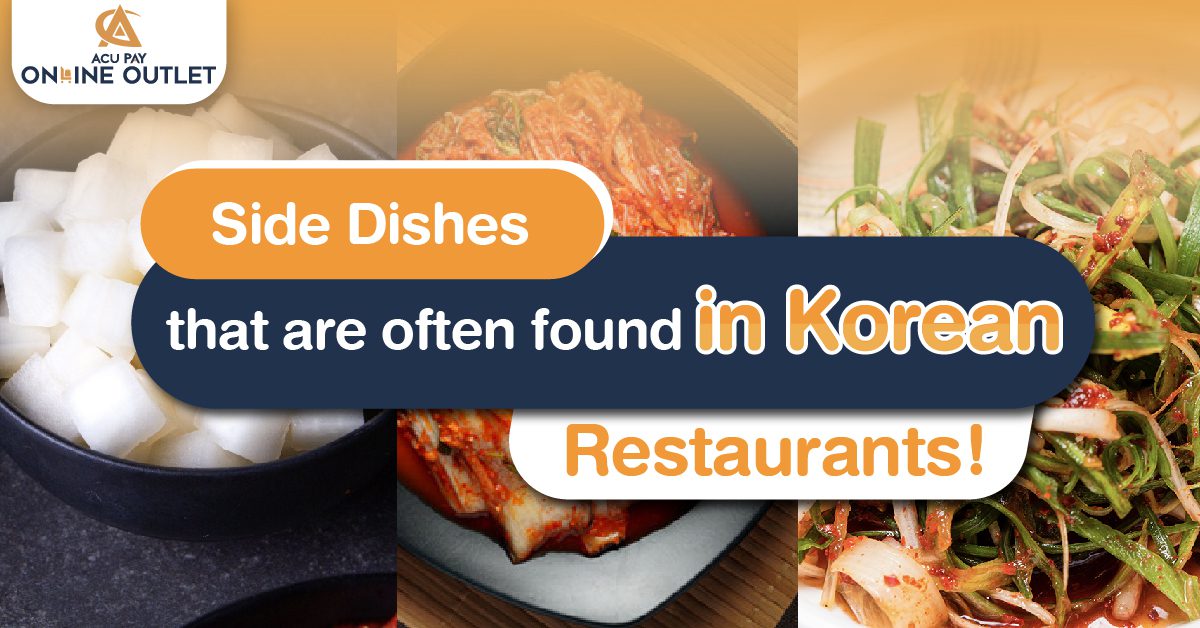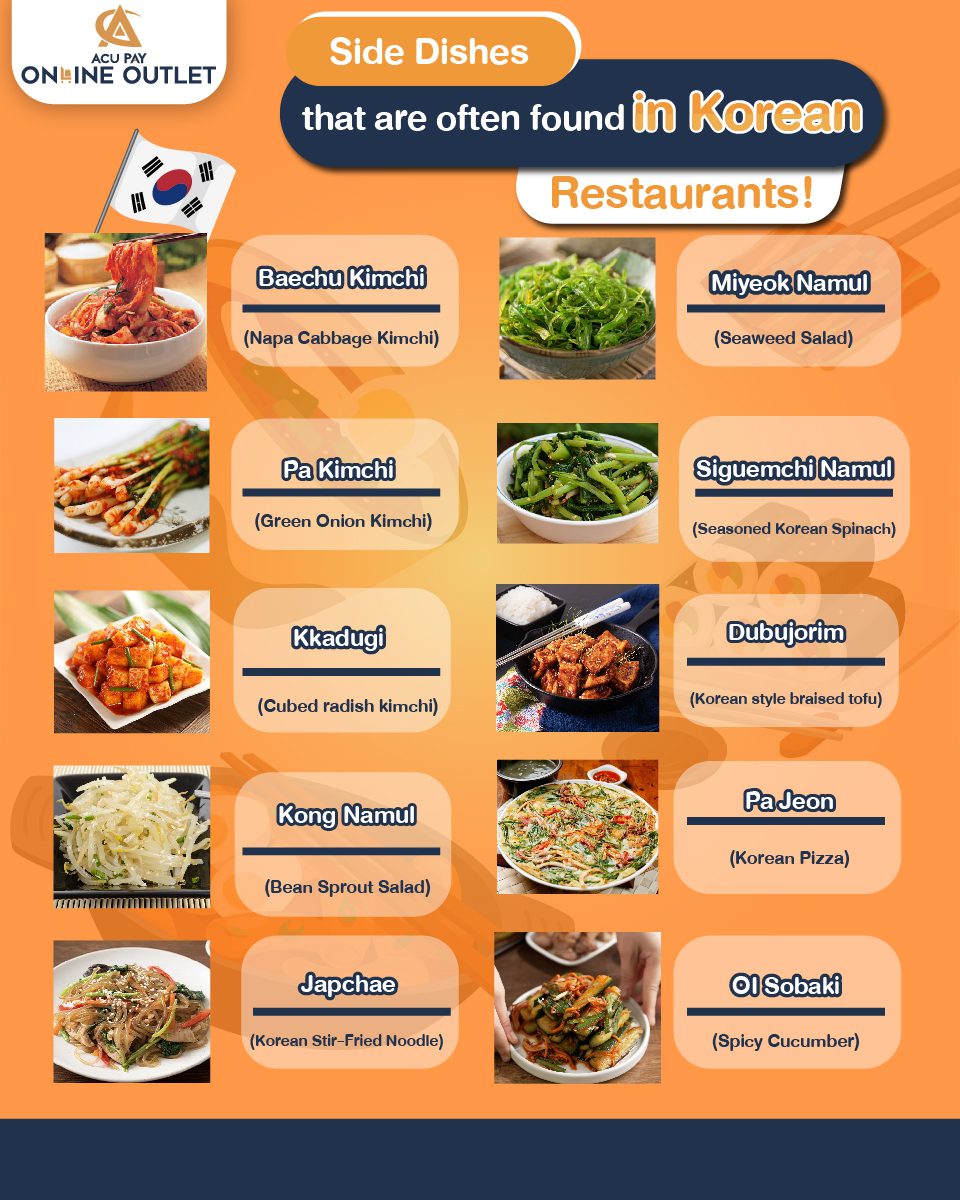


‘Banchan’ is one of the important elements in Korean food that is as important as main dishes. It is said that this custom originated during the Goryeo Dynasty (around the 10th to 14th centuries). Not all houses eat such magnificent Korean side dishes as these side dishes also indicate the economic and social status of Koreans in the past. The more side dishes, the more power and wealth.
For example, the royal court’s meals will have 12 side dishes, the upper-class’ or aristocrat’s meals will have 9 side dishes, the wealthy family’s meal will have 5 – 7 side dishes, and the commoner’s meal will have only 3 side dishes. Side dishes will supplement the nutrition of the entire meal at every meal because they consist of vegetables, flour, and meat.
The most basic side dish that we are all familiar with in every Korean meal is Kimchi or spicy salty pickles with a little taste of sour. This side dish is made to preserve fresh vegetables such as cabbage, reddish, green onion, and cucumber. Those vegetables will be fermented with salt, Korean chili, and other seasonings.
The kimchi menu that you are well familiar with are Baechu Kimchi (Napa Cabbage Kimchi), Kkadugi (Cubed radish kimchi), or Pa Kimchi (Green Onion Kimchi). Those kimchi can be cooked into various menu such as Kimchi Soup and Kimchi Fried Rice.
Namul is a non-spicy side dish. It is a vegetable side dish such as bean sprout, seaweed, spinach, eggplant, or amaranth. They will be scald, boiled, and steamed then seasoned with sesame oil and other seasonings. Minced garlic, sliced green onion can be added to make it more mellow such as Siguemchi Namul (Seasoned Korean Spinach) and Kong Namul (Bean Sprout Salad)
The side dish with a little spiciness from Gochujang sauce. This type of side dish will use various vegetables such as eggplant, seaweed, or spinach, or meat such as squid, pork, or shellfish to cook, then seasoned with Korean-style salad with gochujang such as Siguemchi Muchim (Korean Spinach Salad), Gaji Muchim (Eggplant salad) and Ojingo Muchim (Dried Squid Salad)
These Korean side dishes are made by stir-frying ingredients with sauce such as kimchi fried rice, meat fried with kimchi, pork fried with gochujang sauce, seasoned mushrooms, or whatever that is stir-fried, the stir-fried with sauce menu we see often are Myolchi Bokkeum (Sweet fried anchovies) and Jjukkumi (Spicy Stir-Fried Small Octopus).
This type of Korean side dishes that stews ingredients in a seasoned broth, such as Dubujorim (Korean style braised tofu), where white tofu is sliced and fried to a crisp, then stewed in gochujang sauce and seasoning sauce or tofu in soy sauce, or small pieces of meat that have been boiled in sauce or soup can be called Joreum.
Steamed or boiled Korean side dishes, with various ingredients to be stewed, boiled, or steamed, such as Gyeranjjim (Korean-style Hot Pot Steamed Egg) are favored by many people, served in a hot pot. Also, it may be galbi jjim (steamed ribs), or Saengseonjjim (steamed fish).
Korean side dishes that look like fried dough, which in the dough sheet is mixed with eggs, meat, and vegetables such as green onion and kimchi, seasoned and fried. Among the side dishes we often see in Korean restaurants are Pa Jeon (Korean green onion pancake), Kimchi jeon (Kimchi pancake), and Gamja Jeon (Korean-style potato pancake) with a round shape similar to pancakes.
There are a lot more side dishes such as rolled egg, potatoes salad, and Japchae (Korean Stir-Fried Noodle)
References from

ให้ทุกเรื่องการเงินเป็นเรื่องง่าย เริ่มต้นวันดีๆ ไปกับเรา MAKE A GREAT DAY WITH ACU PAY